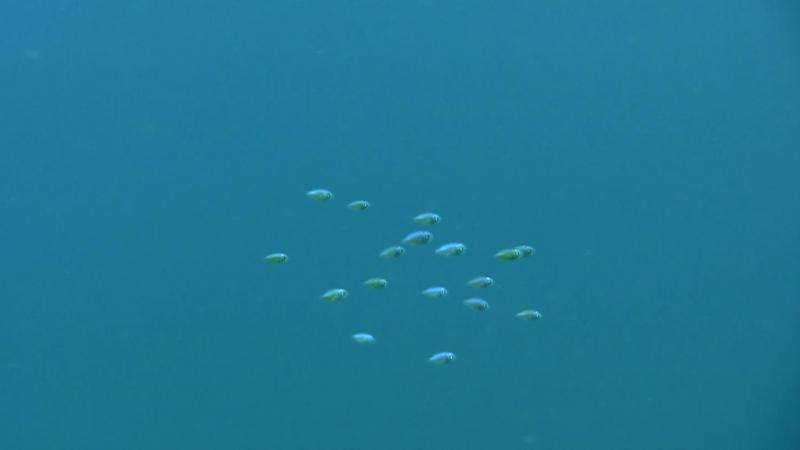Study finds fish larvae are better off in groups

A recent study provides new evidence that larvae swim faster, straighter and more consistently in a common direction when together in a group. The research led by scientists at the University of Miami (UM) Rosenstiel School of Marine and Atmospheric Science is the first to observe group orientation behaviors of larval fish.
The research team compared the movements of both individuals and groups of 10-12 in a species of damselfish, Chromis atripectoralis, in their natural environment off Lizard Island on the Great Barrier Reef. Larvae were observed by divers and by using a drifting image recording device, called the DISC (Drifting In Situ Chamber), developed by Paris.
The results revealed that groups swam on a 15 percent straighter course and seven percent faster than individuals. "In addition, our observations suggest that group orientation emerges from simple group dynamics rather than from the presence of more skillful leaders," said UM Rosenstiel School Associate Professor Claire Paris. This implies that the results could apply to a wide range of organisms, or even automated navigation systems, without requiring strong cognitive skills.
Schooling behavior in adult fish is thought to be beneficial to reduce predation and to better detect food. This is the first study to report group orientation behaviors during a fish's larval stage, prior to settlement on to a reef.
Paris' research team plans to conduct future studies to better understand the mechanisms involved in group orientation and determine if fish larvae stay in groups as soon as they hatch.
The study, titled "With a Little Help from my Friends: Group Orientation by Coral Reef Fish Larvae," was published in the Dec. 1, 2015 issue of the journal PLOS ONE. The study's authors include: Irisson and Paris of the UM Rosenstiel School; Jeffrey Leis and Michelle Yerman of the Australian Museum Research Institute. The study was funded by a OTIC grant from the National Science Foundation.
Journal information: PLoS ONE
Provided by University of Miami



















